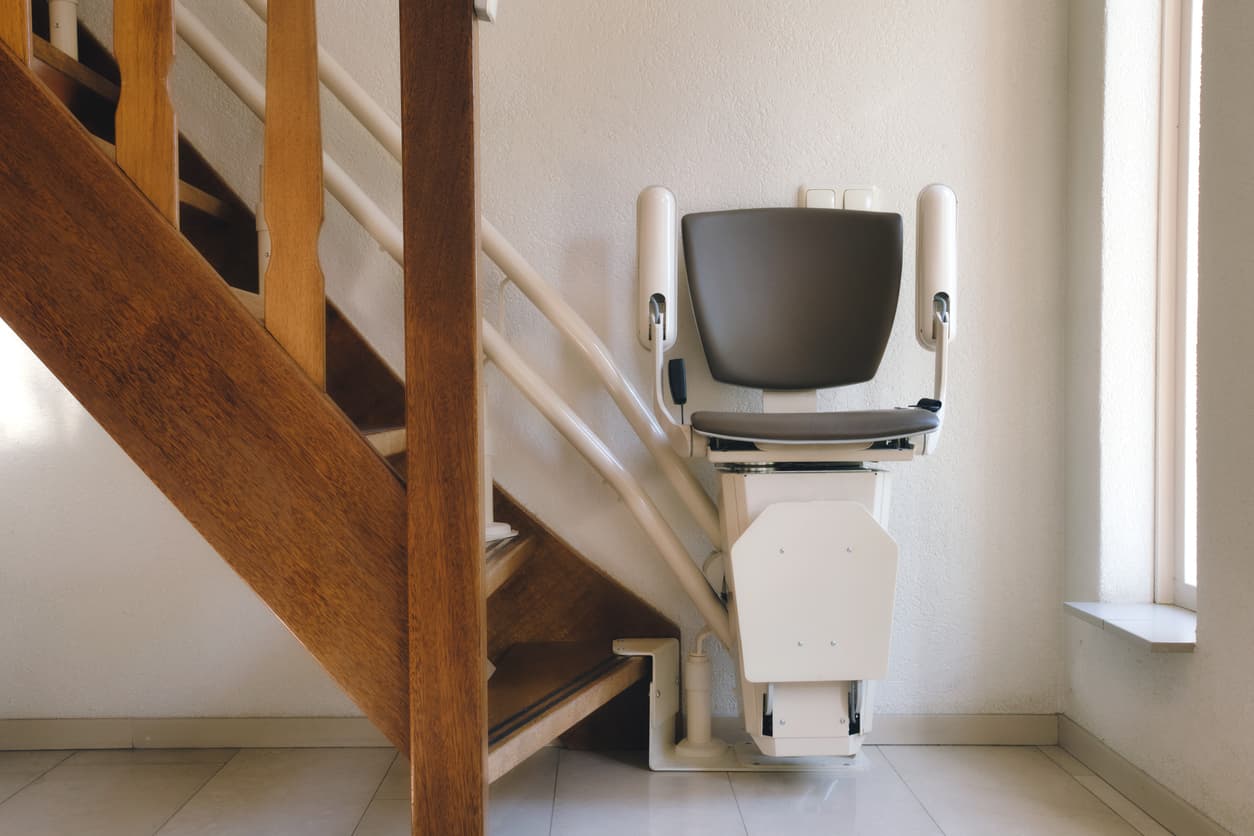HMO or PPO: Which Medicare Health Plan Is Right for You?
When you enroll in a Medicare Advantage Plan
Speak with a Medicare Advocate
While there are several good health plans to choose from, the two most popular options include HMO (Health Maintenance Organization) and PPO (Preferred Provider Organization) plans.
What exactly do these plans have to offer? How do they differ in terms of coverage?
Keep reading to find out. We'll answer all your questions about HMOs and PPOs so you can decide which health plan is best for you.
What's an HMO Plan?
An HMO (Health Maintenance Organization) plan is one type of Medicare Advantage health plan. HMOs have a specific network of doctors and hospitals. To get coverage, you must receive medical care within this network.
Here's what to expect if you enroll in an HMO plan:
No coverage outside your network (except for emergency care)
Low monthly premiums and deductibles
You have to select a primary care physician (PCP) to manage your healthcare needs
Your PCP must write a referral for you to visit a specialist
Prescription drugs are only covered if you're enrolled in an HMO plan with prescription drug coverage (and you must order these drugs from pharmacies within your network)
Your network covers only one laboratory provider for lab work (e.g., blood draws and urine tests)
What's a PPO Plan?
A PPO (Preferred Provider Organization) plan is another type of Medicare Advantage plan. PPOs also have a network of doctors and hospitals, but they don't require you to stay within the network. However, you will likely have to pay more to go outside the network.
Here's what to expect if you enroll in a PPO plan:
Coverage both inside and outside your network (Note: Copays and out-of-pocket costs might be higher for out-of-network providers)
Higher monthly premiums
You don't need to select a PCP
You don't need PCP referrals to see a specialist
Prescription drugs are only covered if you're enrolled in a PPO plan with prescription drug coverage. (You can order prescription drugs from any pharmacy, but choosing pharmacies within your network might be cheaper)
You have more coverage options for your lab work
What Are the Differences Between an HMO and PPO Plan?
HMO and PPO plans differ when it comes to:
Provider networks (in-network limitations and out-of-network coverage)
Costs (premiums)
PCP requirements
Expectations for filing reimbursement claims
Let's look at these differences in more detail.
HMO vs. PPO: Provider Networks
Both HMO and PPO plans have specific networks of hospitals and doctors. But they differ in terms of network coverage.
HMO plans:
Provide coverage only when you visit an in-network doctor (i.e., they don't cover visits to out-of-network providers)
Have in-network limitations for lab work and prescription drugs. You'll need to stick to labs and pharmacies within the network to get coverage for your blood tests, urine tests or prescription drugs
PPO plans:
Provide coverage even when you see a doctor outside the network (Note: You might have a higher copay for out-of-network visits)
Don't have in-network limitations for lab work and prescription drugs
HMO vs. PPO: Costs
The costs will vary depending on which plan you sign up for. But the following points might indicate patterns of what you could expect to pay.
HMO plans:
Low premiums
Low (or no) deductibles
Only require a copay when you receive healthcare services
PPO plans:
High monthly premiums
Include deductibles, copays, and coinsurance when you receive healthcare services
HMO vs. PPO: PCP
HMO plans:
Require you to select a primary care physician (PCP) from within the network
Require a referral from your PCP to consult a specialist
Cover specialist consultations only when you have a referral
PPO plans:
Don't require you to have a PCP
Let you visit any doctor (or specialist) without a referral
HMO vs. PPO: Filing Claims
HMO plans:
Don't require you to file a claim (since your healthcare services only come from in-network providers)
PPO plans:
Ask that you pay out-of-network providers directly and then file a claim for reimbursement
Which Health Plan Fits for Me?
The right health plan for you totally depends on your needs. Let's run through a few scenarios:
You're in good health — HMO
If you have no major health issues and your favorite doctor is within the network, choose an HMO.
You're looking for an affordable plan — HMO
HMO plans might have lower monthly premiums and sometimes have zero deductibles.
You travel a lot — PPO
A PPO plan is best for frequent travelers since it doesn't limit you to only in-network providers. You can visit any doctor outside the network, even when you're away from home.
You live in a rural area — PPO
A PPO plan is a good option if you live in a rural area with very few doctors within your network.
Fair Square Medicare Can Help You Decide Which Plan Meets Your Needs
If you're trying to decide between an HMO and a PPO plan, start by comparing their out-of-network coverage, costs, PCP requirements, and expectations for filing reimbursement claims. You should also consider factors like location, personal health, traveling frequency, and budget.
If you feel stuck, our team at Fair Square Medicare Medicare
Recommended Articles

Does Your Medicare Plan Cover B12 Shots?
Aug 15, 2022

Is Balloon Sinuplasty Covered by Medicare?
Dec 1, 2022

Does Medicare Cover Scleral Lenses?
Dec 5, 2022

How Much Does Medicare Part A Cost in 2025?
Nov 18, 2022

When Can You Change Medicare Supplement Plans?
Nov 18, 2022

Does Medicare Cover Stair Lifts?
Nov 18, 2022

Does Medicare Cover Cala Trio?
Nov 23, 2022

Is Displacement Affecting Your Medicare Coverage?
Oct 6, 2022

Medicare Deductibles Resetting in 2025
Jan 18, 2024

How Much Does a Medicare Coach Cost?
Mar 20, 2023

20 Questions to Ask Your Medicare Agent
Mar 17, 2023

Does Medicare cover Hyoscyamine?
Nov 30, 2022

Does Medicare Cover Cosmetic Surgery?
Nov 28, 2022

Finding the Best Vision Plans for Seniors
Jan 6, 2023

14 Best Ways for Seniors to Stay Active in Seattle
Mar 10, 2023

Does Medicare Cover Fosamax?
Nov 30, 2022

Does Medicare Cover SIBO Testing?
Dec 1, 2022

Does Medicare Cover Diabetic Eye Exams?
Jan 11, 2023
More of our articles
13 Best Ways for Seniors to Stay Active in Columbus
13 Best Ways for Seniors to Stay Active in Jacksonville
14 Best Ways for Seniors to Stay Active in Washington, D.C.
Are Medicare Advantage Plans Bad?
Building the Future of Senior Healthcare
Can I Use Medicare Part D at Any Pharmacy?
Do I Need to Renew My Medicare?
Do Medicare Supplement Plans Cover Dental and Vision?
Do You Need Medigap if You're Eligible for Both Medicare and Medicaid?
Does Medicare Cover Abortion Services?
Does Medicare Cover Air Purifiers?
Does Medicare Cover Cardiac Ablation?
Does Medicare Cover Cartiva Implants?
Does Medicare Cover Cataract Surgery?
Does Medicare Cover Cervical Disc Replacement?
Does Medicare Cover Cold Laser Therapy (CLT)?
Does Medicare Cover COVID Tests?
Does Medicare Cover Disposable Underwear?
Does Medicare Cover Flu Shots?
Does Medicare Cover Geri Chairs?
Does Medicare Cover Hoarding Cleanup?
Does Medicare Cover Hypnotherapy?
Does Medicare Cover Iovera Treatment?
Does Medicare Cover Krystexxa?
Does Medicare Cover Light Therapy for Psoriasis?
Does Medicare Cover Medical Marijuana?
Does Medicare Cover Ofev?
Does Medicare Cover Oxybutynin?
Does Medicare Cover Ozempic?
Does Medicare Cover Physicals & Blood Work?
Does Medicare Cover Qutenza?
Does Medicare Cover SI Joint Fusion?
Does Medicare Cover the WATCHMAN Procedure?
Does Medicare Cover Tymlos?
Does Medicare Cover Urodynamic Testing?
Does Medicare pay for Opdivo?
Does Retiring at Age 62 Make Me Eligible for Medicare?
Does Your Plan Include A Free Gym Membership?
Explaining the Different Enrollment Periods for Medicare
How Are Medicare Star Ratings Determined?
How Can I Get a Replacement Medicare Card?
How Do Medicare Agents Get Paid?
How Does Medicare Cover Colonoscopies?
How Does Medicare Pay for Emergency Room Visits?
How Does the End of the COVID-19 Public Health Emergency Affect Your Medicare?
How is Medicare Changing in 2025?
How Medicare Costs Can Pile Up
How Much Does Medicare Cost?
How Much Does Medicare Part B Cost in 2025?
How Much Does Rexulti Cost with Medicare?
How Much Does Trelegy Cost with Medicare?
How Often Can I Change Medicare Plans?
How to Become a Medicare Agent
How to Choose a Medigap Plan
How to Compare Medigap Plans in 2025
Is Emsella Covered by Medicare?
Is the Shingles Vaccine Covered by Medicare?
Medicare Advantage Plans for Disabled People Under 65
Saving Money with Alternative Pharmacies & Discount Programs
Seeing the Value in Fair Square
Should You Work With A Remote Medicare Agent?
The Fair Square Bulletin: October 2023
Turning 65 and Thinking of Keeping COBRA? Here’s Why It Usually Backfires
What is a Medicare Beneficiary Ombudsman?
What is Plan J?
What Is the Medicare Birthday Rule in Nevada?
What is the Medicare ICEP?
What To Do If Your Medicare Advantage Plan Is Discontinued
What to Do When Your Doctor Leaves Your Network
What's the Deal with Flex Cards?
Will Medicare Cover Dental Implants?
Will Medicare Cover it?
Get the Fair Square Bulletin
Medicare savings tips, helpful guides, and more.
Virgil Insurance Agency, LLC (DBA Fair Square Medicare) and www.fairsquaremedicare.com are privately owned and operated by Help Button Inc. Medicare supplement insurance plans are not connected with or endorsed by the U.S. government or the federal Medicare program. This is a solicitation of insurance. A licensed agent/producer may contact you. Medicare Supplement insurance is available to those age 65 and older enrolled in Medicare Parts A and B and, in some states, to those under age 65 eligible for Medicare due to disability or End-Stage Renal disease. Virgil Insurance Agency is a licensed and certified representative of Medicare Advantage HMO, HMO SNP, PPO, PPO SNP and PFFS organizations and stand-alone PDP prescription drug plans. Each of the organizations we represent has a Medicare contract. Enrollment in any plan depends on contract renewal. The plans we represent do not discriminate on the basis of race, color, national origin, age, disability, or sex. Plan availability varies by region and state. For a complete list of available plans please contact 1-800-MEDICARE (TTY users should call 1-877-486-2048), 24 hours a day/7 days a week or consult www.medicare.gov. © 2026 Help Button Inc
We do not offer every plan available in your area. Any information we provide is limited to those plans we do offer in your area. Please contact Medicare.gov or 1-800-MEDICARE to get information on all of your options.
MULTIPLAN_FairSquareMedicare_01062022_M
Fair Square Medicare


